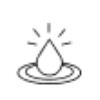Foria is thrilled to announce our partnership with Wile, a woman-owned-and-founded brand that crafts herbal supplements for body, mind and mood, all made specially to support women over 40.
We love Wile because they’re deeply invested in nurturing women’s pleasure and wellbeing across the lifespan – just like us. And just like us, they’re crafting potent botanical tools to help women thrive during a phase of life that’s often under-served and uncelebrated.
For a radical exploration of misinformation, menopause, and the joys of (finally) being a grownup, we sat down for a chat with Julie Kucinski, Wile’s Co-Founder and Chief Brand Officer.
Her years in the beauty and natural industries made the need for Wile clear. Uniting her beliefs in humanity, storytelling and the natural world, she works to drive culture change that elevates women.
We’re a brand that’s all about supporting intimate stages across the lifespan, from menstruation to menopause. We love the work you’re doing and would love to hear what inspired you to start working in the menopause space, addressing needs specifically for this time of life?
We created Wile because we needed it!
As co-founders, we knew women fell off the advertising radar around 38, even though brands and retailers rely on us as consumers.
Our experience in natural brands and wellness gave us insight into the power of plants and the hunger for more options.
Once we got to this age ourselves, we saw that the gap between what women need and want and how the market and medical establishment ignore us is even more outrageous.
Beyond delivering naturopathic products that work for women’s unmet needs, we want to bust through the old tropes and stereotypes to help women embrace this era as one of power and joy. We are anything but invisible.
What are the major myths you encounter about menopause and how is Wile changing those narratives?
There are so many, but some worth calling out:
It’s all hot flashes & weird periods — no, it’s a whole-body experience that can vary widely and wildly person to person.
It’s a couple of years— the journey spans years, typically from about 5 for Asian American women and about 10 for Black women.
It’s just menopause— the cultural weight of moving through this life stage is huge, often combined with a peak stress load coming from all sides.
This life stage is as monumental a shift in our identity, physical and psychological selves as puberty or motherhood. But perimenopause and “aging” is only one we are supposed to pretend is not happening. In the ageist society we live in, this all begs for more examination. And we’re here for it!
You speak to an important part of the menopause journey called “the shift”, that isn’t really accounted for culturally yet. Can you explain what you mean by “the shift”?
Most of the medical establishment says perimenopause starts when significant changes in your period occur. Data bears out there far more to it. Hormonal shifts typically happen much earlier. Anyone who had a “geriatric pregnancy” or done IVF has heard all about that.
Well, it impacts more than baby-making. Often the shifts show up first in our emotional well-being, sleep and other “signs of aging.” They all connect to hormonal changes.
Yet often women are told they are too young to be perimenopausal or don’t have symptoms yet if they seek help.
Since our world is so ageist, we understand why women aren’t jumping up to self-identify as perimenopausal. So we’re opening this conversation and self-advocacy with The Shift.
We want people to know it’s not them. This is “normal” but we do not have to tolerate it. We can work with our hormones, adrenal and nervous systems to feel better. We don’t have to blame ourselves for being irritable or worry we’re dying because our hair is thinning or we’re suddenly getting dizzy spells. It’s very likely The Shift! And there are options, Wile products are one of them.
You reference the concept of being “grown” a lot in your messaging. In the context of your work with Wile, what does it mean to be “grown”?
Grown reflects the positive, beautiful and powerful parts of being an older woman and owning the experiences it takes to get here.
We see confidence, grace, power, centeredness, deeper priorities, intelligence, grit and a different sort of beauty and community in women of our age. And far more adjectives than those. It all should be celebrated.
Our culture sells this narrative that youth is the pinnacle of life and we’re supposed to strive to look, feel, act, be 33 or under til death—50 years later.
Simply put: Nope.
What would you say to someone who’s struggling with the challenges of hormonal and other changes? How can they best support themselves?
You can work with your hormones and your body, thinking and feeling. You do not have to feel this way.
Talk openly with your friends–we need to normalize this. Women tell us all the time how critical opening these conversations are, we should all do it! You are not alone!
Challenge ageist narratives, including in your own head—this is something we ourselves have to do, daily!
Find good podcasts & follows—There are many. Start with ones like Hot Flashes & Cool Topics and hotflashinc that examine a broad spectrum of options, experts and answers.
Find a doctor who gets it — The North American Menopause Society has a database of M.D. providers who are trained in perimenopause, which can be hard to find. Naturopaths, traditional chinese medicine practitioners have always faced this lifephase head on and are always on our lists.
We have sought out functional and integrative M.D.s in our own lives, which is challenging but can provide a balance of both.
Hormonal support - whether herbal, bioidentical or synthetic - can make a big difference. No one path works for all people. Unfortunately, it’s work to pursue wellness in this world but you are worth it.
What’s the last thing you learned about midlife changes that really surprised you?
That 80% of midlife women who aren’t having sex wish they were having sex.
The story can go so negative - that women are in hell, drained to the edge, want to tap out of everything. Not the full story.
We are tired but we want more living and pleasure and positive connection, not less.
If you could change one thing about the cultural narrative about getting older in a female body, what would it be?
See above! We say the only thing that’s old and tired is the narrative that we are old and tired. Yeah, my body will never look like it did 20 years ago but my inner being is way healthier.
Finally, we want to hear all of the reasons to celebrate and truly enjoy this time of life. So what are some of your favorite and surprisingly wonderful things about being grown?
Feeling truly open and evolving in a way that perhaps the tumult and chasing of the 20s-30s did not offer.
I think the term midlife crisis gets it wrong. Maybe the crisis is actually the work it takes to get there. The crisis is that we worship one very small, brief age range.
There’s evidence our hormones help us obsess less over the caretaking of others, and I’d guess the competitiveness as well.
At this point, my connections are deeper, my “getting it” about what matters is more true, and some of the stuff I was wrapped up in at early stages of life have evaporated.
Want more? Sign up for our newsletter
By entering your email, you are agreeing to our terms and conditions and understand our privacy policy.








